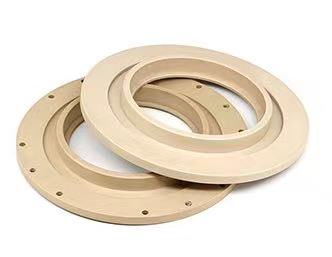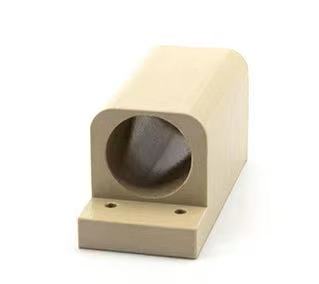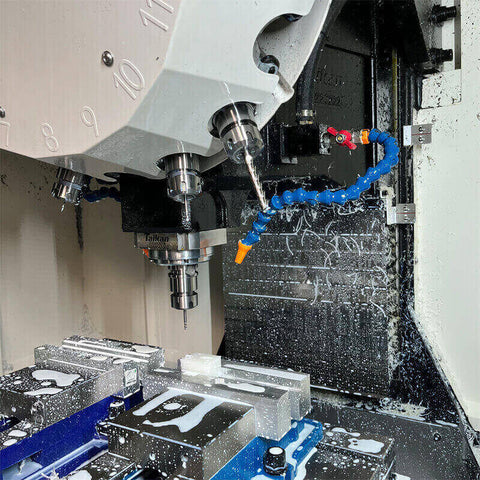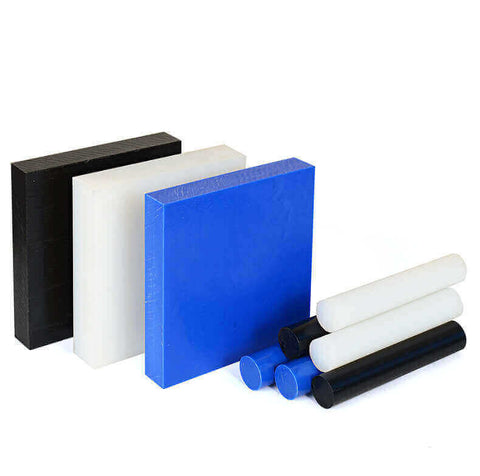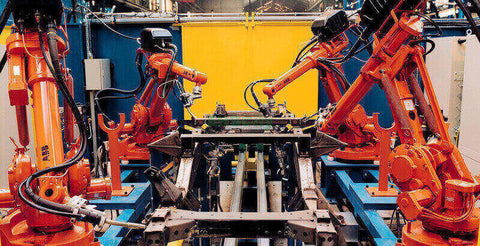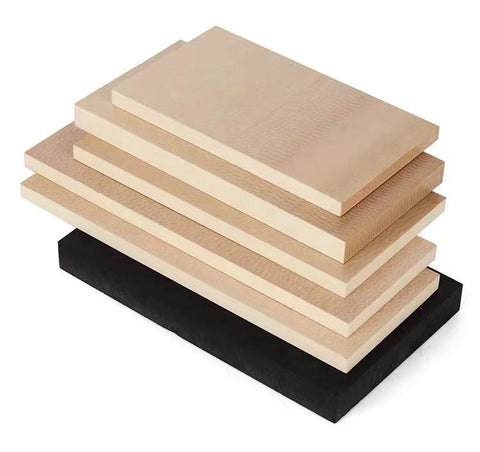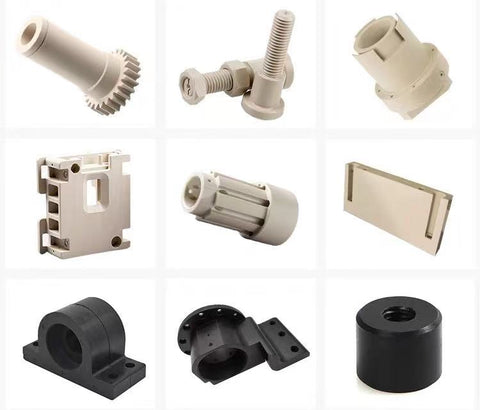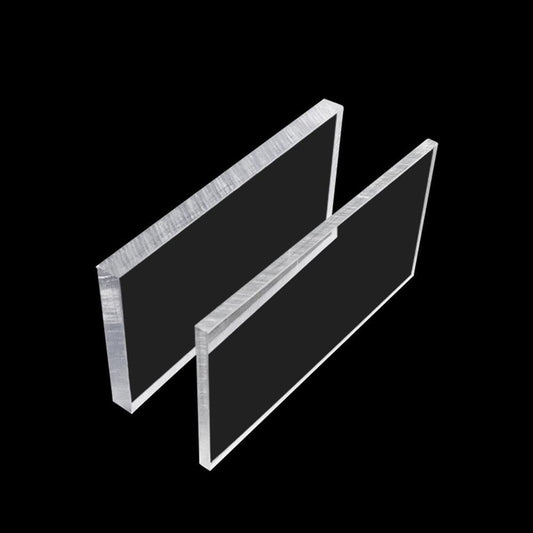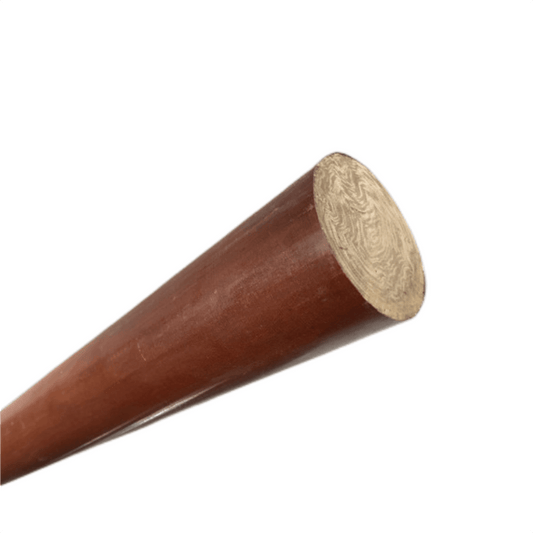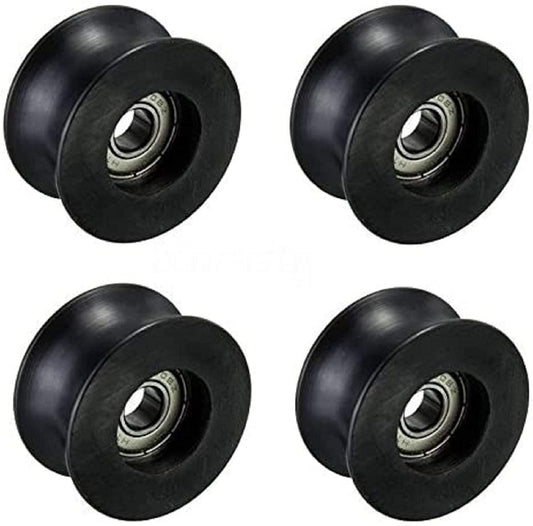Dive into the world of PPS CNC Machining with our latest blog post, "[Innovative Solutions in PPS CNC Machining for Advanced Industrial Applications]." This comprehensive guide begins by Understanding PPS Material in CNC Machining, highlighting the unique properties of Polyphenylene Sulfide (PPS) that make it indispensable in industrial settings. We delve into its heat resistance, chemical stability, and mechanical strength, showcasing why PPS stands out in the realm of industrial materials.
🎉🎉🎉Limited Time Offer Use code: QR4GNY08SHVR at checkout and enjoy a special discount on your entire order! 👉PPS board
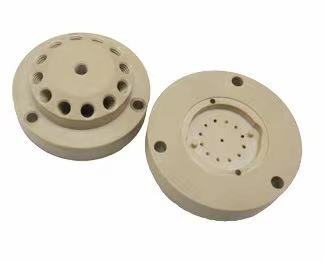
Next, we explore the cutting-edge Advancements in PPS CNC Machining Technology. This section illuminates the latest technological innovations that have revolutionized precision and efficiency in machining, offering insights into new machinery, software, and groundbreaking techniques.
Our journey continues with Case Studies: Successful Industrial Applications of PPS CNC Machining. Here, real-world examples bring to life the transformative impact of PPS CNC machining across various industries, demonstrating improvements in product quality and performance.
The focus then shifts to Customization Opportunities with PPS CNC Machining. We discuss how this technology opens doors to unparalleled customization, catering to specialized industrial needs with flexibility in design and adherence to industry standards.
In a Comparative Analysis: PPS vs. Other Industrial Materials in CNC Machining, we provide a detailed comparison between PPS and other materials. This analysis covers aspects like cost-effectiveness, durability, and environmental suitability, offering a comprehensive view for industry professionals.
Finally, we look ahead in Future Trends and Potential in PPS CNC Machining for Industry. This forward-looking perspective speculates on emerging technologies and potential new applications, painting a picture of how PPS CNC machining will continue to shape the future of industrial manufacturing and design.
Join us in uncovering the remarkable capabilities and future possibilities of PPS CNC Machining in industrial applications, a journey that promises to be as informative as it is inspiring.
Understanding PPS Material in CNC Machining
The Unique Properties of Polyphenylene Sulfide (PPS)
When it comes to CNC machining for industrial applications, Polyphenylene Sulfide (PPS) stands out as a material of choice due to its exceptional properties. PPS is a high-performance thermoplastic polymer known for its remarkable balance of properties that cater to demanding industrial environments.
Heat Resistance of PPS
One of the most notable characteristics of PPS is its outstanding heat resistance. This material can withstand continuous exposure to high temperatures without losing its structural integrity. This makes PPS an ideal choice for applications in industries like aerospace, automotive, and electronics, where components are regularly subjected to high thermal conditions. The ability of PPS to maintain its properties at temperatures exceeding 200°C (392°F) is a testament to its robustness in challenging thermal environments.

Chemical Stability in Industrial Settings
Chemical stability is another cornerstone of PPS's suitability for industrial use. This polymer exhibits excellent resistance to a wide range of chemicals, including acids, alkalis, and organic solvents. This resistance is crucial in environments where exposure to aggressive substances is common, such as in chemical processing equipment or parts used in oil and gas extraction. The chemical inertness of PPS ensures that components made from this material maintain their functionality and longevity even in harsh chemical environments.
Mechanical Strength and Durability
The mechanical strength of PPS is a key factor in its widespread adoption in CNC machining for industrial applications. PPS components are known for their high stiffness, strength, and dimensional stability. This means they can withstand significant mechanical stress and maintain their shape and size under load. This mechanical robustness is essential in manufacturing parts that require precision and reliability, such as gears, valves, and pump components in industrial machinery.
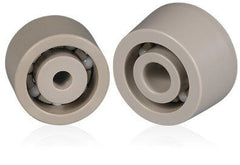
Why PPS is Preferred in CNC Machining
The combination of heat resistance, chemical stability, and mechanical strength makes PPS an exceptionally versatile material in CNC machining. Its ability to perform reliably in extreme conditions while maintaining precision and strength is highly valued in industrial applications. Furthermore, PPS's ease of machining allows for the creation of complex parts with tight tolerances, making it a go-to material for engineers and designers seeking high-performance components.
In conclusion, Polyphenylene Sulfide (PPS) is more than just a material; it's a solution to many of the challenges faced in modern industrial applications. Its unique set of properties ensures that components made from PPS can meet the rigorous demands of various industries, making it a cornerstone material in the realm of advanced CNC machining.
Advancements in PPS CNC Machining Technology
Cutting-Edge Machinery in PPS Machining
The landscape of PPS CNC Machining has been revolutionized by the introduction of cutting-edge machinery. These advanced machines are designed to handle the unique properties of Polyphenylene Sulfide (PPS), enhancing the precision and efficiency of the machining process. With features like high-speed spindles, enhanced cooling systems, and robust construction, these machines can maintain accuracy even at high operating temperatures, a critical factor when working with PPS.
High-Precision Machining Capabilities
Modern CNC machines used for PPS machining come equipped with state-of-the-art precision capabilities. They offer improved control over the machining process, allowing for the creation of parts with extremely tight tolerances. This precision is crucial in industries where even the slightest deviation can lead to significant performance issues, such as in aerospace or medical device manufacturing.
Innovative Software Solutions
Advanced CNC Programming for PPS
The role of software in CNC machining of PPS cannot be overstated. Advanced CNC programming has made it possible to optimize the machining process, reducing waste and increasing efficiency. Software solutions now offer sophisticated algorithms that can predict and compensate for potential issues related to material properties, such as thermal expansion or deformation under machining stress.
Simulation and Optimization Tools
Simulation tools have become a game-changer in PPS CNC machining. These tools allow machinists and engineers to visualize the entire machining process before a single cut is made. By simulating different scenarios, they can optimize tool paths, adjust machining parameters, and anticipate potential problems. This not only saves time and resources but also significantly reduces the risk of errors.
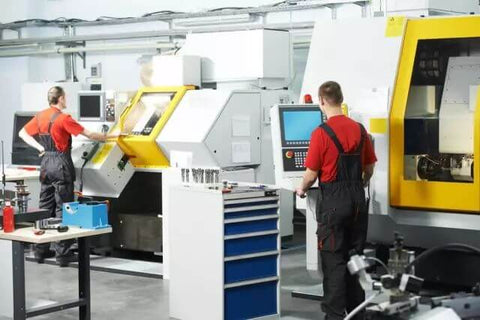
Emerging Techniques in PPS Machining
5-Axis Machining and PPS
The adoption of 5-axis machining technology has opened new possibilities in PPS CNC machining. Unlike traditional 3-axis systems, 5-axis machines can manipulate the workpiece in five different axes simultaneously, allowing for more complex geometries and designs. This capability is particularly beneficial for intricate PPS components that require a high level of detail and precision.
Automation and Robotics
The integration of automation and robotics in PPS machining is setting new standards for efficiency and consistency. Automated systems can operate continuously, maintaining consistent quality and output, which is vital for large-scale industrial production. Robotics in CNC machining also enhances safety, as it reduces human interaction with high-temperature processes and potentially hazardous materials.
In conclusion, the advancements in PPS CNC Machining Technology, from state-of-the-art machinery and innovative software to emerging techniques like 5-axis machining and automation, are driving the industry forward. These developments not only enhance the capabilities of working with PPS but also ensure higher precision, efficiency, and reliability in industrial applications.


